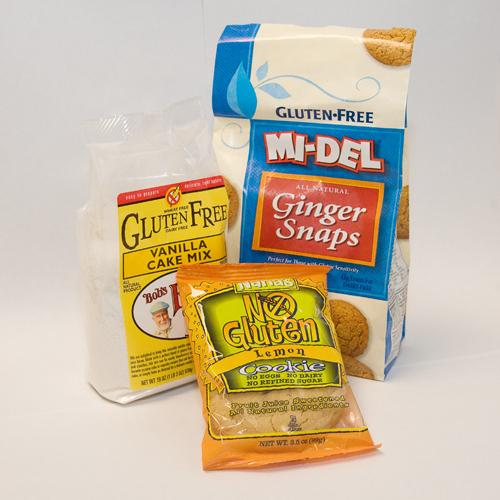
More and more people are consuming gluten-free foods as grocery stores stockup on the popular products. (Sidney Hollingsworth/The Daily Campus)
The gluten-free diet is becoming an increasingly popular trend among American consumers. Gluten-free products can be found at every grocery store now, and celebrities and locals alike are trying out the new “fad.” But most people aren’t even sure what a gluten-free diet consists of, what the benefits are and what gluten even is.
So for starters you may ask: What is gluten? Gluten is a protein that is found in certain grains such as wheat, barley and rye.
The purpose of gluten is to give elasticity to dough, which helps it to rise and keep its shape, and also adds a chewy texture to the product. Gluten is added to foods that are low in protein, and it enhances the flavors and thickens their consistencies. Although gluten is found primarily in cereals and breads,
it is also found in less obvious foods such as soups, broths, sauces and salad dressings in order to thicken the liquids. It is rare not to find gluten in any processed food product.
So why do people choose to go on a gluten-free diet? The primary reason for developing a gluten-free lifestyle is an illness called celiac disease. This occurs when people have an intolerance to gluten. Symptoms include chronic diarrhea, weight loss and fatigue. It is caused by a reaction to a gluten protein called gliadin, which is found in wheat, barley, rye and occasionally oats. An allergy to wheat can also result in symptoms such as hives, difficulty breathing and digestive problems. Furthermore, people with celiac disease have problems receiving the proper nutrients from gluten-induced foods and therefore are not receive sufficient nutrients to feed their bodies.
The only treatment for celiac disease is a gluten-free diet, hence many people adopt a gluten-free lifestyle. Gluten intolerance is very common-between 5 and 10 percent of all people suffer from the disease and it affects one in 100 people, totaling to nearly three million Americans. With the increasing number of people being diagnosed with celiac disease and gluten intolerance, the gluten-free diet has become very popular.
Aside from medical reasons, people choose to adopt a gluten-free diet for a number of health benefits. These include weight loss, improving cholesterol levels, promoting digestive health and increasing energy levels.
By choosing gluten-free foods, you are eliminating countless unhealthy and processed foods that contribute to health problems and weight gain. Overly processed foods contain chemicals that are not beneficial to the body and gluten products often have a high amount of unhealthy oils and carbohydrates.
By eating gluten-free, you are consuming mainly organic products and a lot of fruit and vegetables.
These gluten-free foods contain antioxidants and vitamins that help sustain the body and promote a healthy and active lifestyle.
Although a gluten-free diet proves to be beneficial with its multiple health benefits, it is not necessarily the healthiest diet to follow.
Many gluten-free products are just as bad for you as the ones with gluten. Be cautious of what you put in your body and keep in mind that the less processed the food is, the better it is for you.










